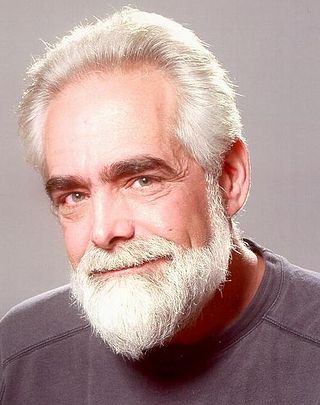
Immanuel Kant was a German philosopher and one of the central Enlightenment thinkers. Born in Königsberg, Kant's comprehensive and systematic works in epistemology, metaphysics, ethics, and aesthetics have made him one of the most influential figures in modern Western philosophy.
In moral philosophy, deontological ethics or deontology is the normative ethical theory that the morality of an action should be based on whether that action itself is right or wrong under a series of rules and principles, rather than based on the consequences of the action. It is sometimes described as duty-, obligation-, or rule-based ethics. Deontological ethics is commonly contrasted to consequentialism, virtue ethics, and pragmatic ethics. In this terminology, action is more important than the consequences.

Sir Bernard Arthur Owen Williams, FBA was an English moral philosopher. His publications include Problems of the Self (1973), Ethics and the Limits of Philosophy (1985), Shame and Necessity (1993), and Truth and Truthfulness (2002). He was knighted in 1999.
This is a bibliography for Ayn Rand and Objectivism. Objectivism is a philosophical system initially developed in the 20th century by Rand.

Robert C. Solomon was a philosopher and business ethicist, notable author, and "Distinguished Teaching Professor of Business and Philosophy" at the University of Texas at Austin, where he held a named chair and taught for more than 30 years, authoring The Passions: Emotions and the Meaning of Life (1976) and more than 45 other books and editions. Critical of the narrow focus of Anglo-American analytic philosophy, which he thought denied human nature and abdicated the important questions of life, he instead wrote analytically in response to the continental discourses of phenomenology and existentialism, on sex and love, on business ethics, and on other topics to which he brought an Aristotelian perspective on virtue ethics. He also wrote A Short History of Philosophy and others with his wife, Professor Kathleen Higgins.
Laurence BonJour is an American philosopher and Emeritus of Philosophy at the University of Washington.
Francis J. "Frank" Beckwith is an American philosopher, professor, scholar, speaker, writer, and lecturer.
Sexual ethics is a branch of philosophy that considers the ethics or morality or otherwise in sexual behavior. Sexual ethics seeks to understand, evaluate and critique interpersonal relationships and sexual activities from a social, cultural, and philosophical perspective. Some people consider aspects of human sexuality, such as gender identification and sexual orientation, as well as consent, sexual relations and procreation, as giving rise to issues of sexual ethics.

Kantian ethics refers to a deontological ethical theory developed by German philosopher Immanuel Kant that is based on the notion that: "It is impossible to think of anything at all in the world, or indeed even beyond it, that could be considered good without limitation except a good will." The theory was developed in the context of Enlightenment rationalism. It states that an action can only be moral if (i) it is motivated by a sense of duty and (ii) its maxim may be rationally willed a universal, objective law.

Kathleen Marie Higgins is an American Professor of Philosophy at the University of Texas at Austin where she has been teaching for over thirty years. She specializes in aesthetics, philosophy of music, nineteenth and twentieth-century continental philosophy, and philosophy of emotion.
T. K. Seung was a Korean American philosopher and literary critic. His academic interests cut across diverse philosophical and literary subjects, including ethics, political philosophy, Continental philosophy, cultural hermeneutics, and literary criticism.

Alan Gerald Soble is an American philosopher and author of several books on the philosophy of sex. He taught at the University of New Orleans from 1986 to 2006. He is currently Adjunct Professor of philosophy at Drexel University in Philadelphia.
Feminist ethics is an approach to ethics that builds on the belief that traditionally ethical theorizing has undervalued and/or underappreciated women's moral experience, which is largely male-dominated, and it therefore chooses to reimagine ethics through a holistic feminist approach to transform it.
Jamie Lindemann Nelson is a philosophy professor and bioethicist currently teaching at Michigan State University. Nelson earned her doctorate in philosophy at the State University of New York at Buffalo in 1980 and taught at the University of Tennessee at Knoxville and St. John's University before moving to Michigan State University. In addition, Nelson was an Associate for Ethical Studies at The Hastings Center from 1990–95 and is both a Woodrow Wilson Visiting Fellow and a Fellow of the Hastings Center. Nelson currently teaches courses on biomedical ethics, ethical theory, moral psychology, feminist theory, and philosophy of language.

Homosexualities: A Study of Diversity Among Men and Women (1978) is a book by the psychologist Alan P. Bell and the sociologist Martin S. Weinberg in which the authors argue that homosexuality is not necessarily related to pathology and divide homosexuals into five types. Together with Homosexuality: An Annotated Bibliography (1972), it is part of a series of books that culminated in the publication of Sexual Preference in 1981. The work was a publication of the Institute for Sex Research.
Diana Meyers is a philosopher working in the philosophy of action and in the philosophy of feminism. Meyers is professor emerita of philosophy at the University of Connecticut.
Richard Kraut is the Charles and Emma Morrison Professor in the Humanities at Northwestern University.
Raja Fouad Halwani is an American-Lebanese philosopher and professor of philosophy at the School of the Art Institute of Chicago. He is known for his works on philosophy of sex.

Helga Varden is a Norwegian-American philosopher and Professor of Philosophy and Gender and Women Studies at the University of Illinois at Urbana-Champaign. She was Brady Distinguished Visiting Professor in Ethics and Civic Life at Northwestern University between 2014-2015. She is known for her works on Kantian philosophy.
The Philosophy of Sex: Contemporary Readings is a book edited by Raja Halwani, Alan Soble, Jacob M. Held, and Sarah Hoffman in which the authors provide philosophical analyses of different aspects of human sexuality.








